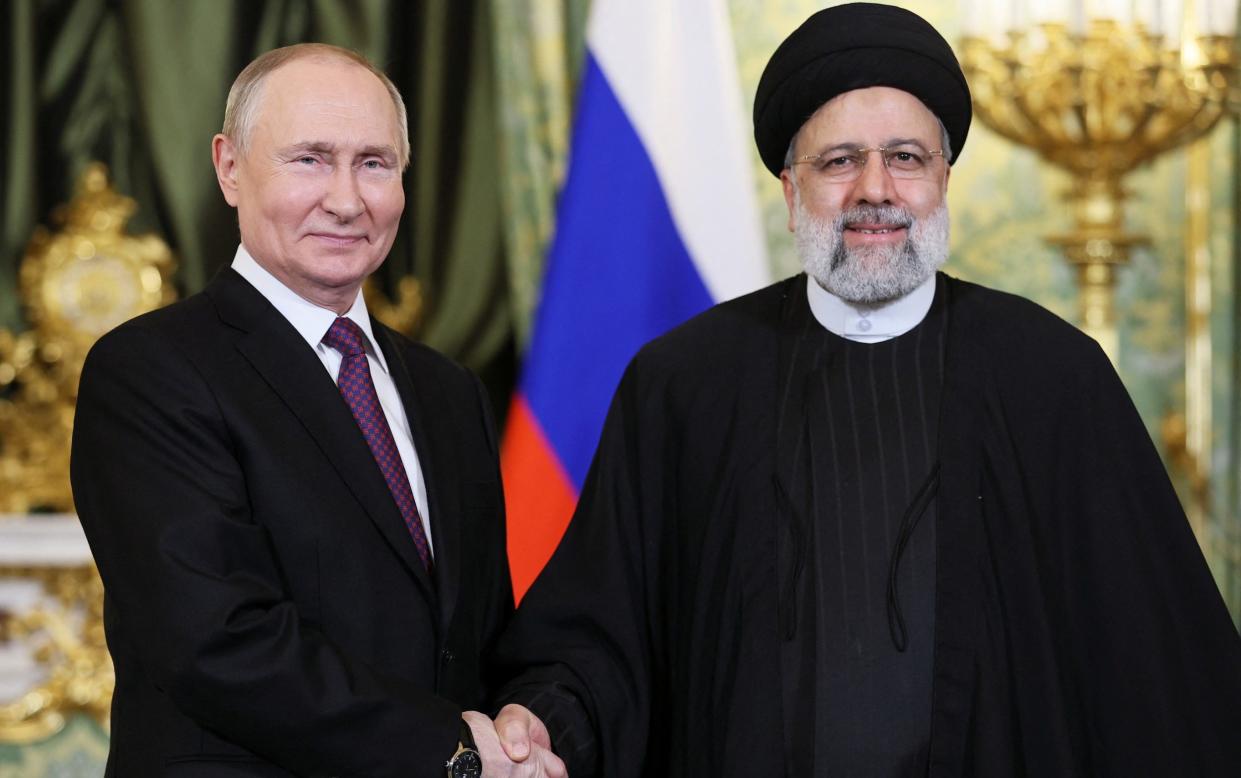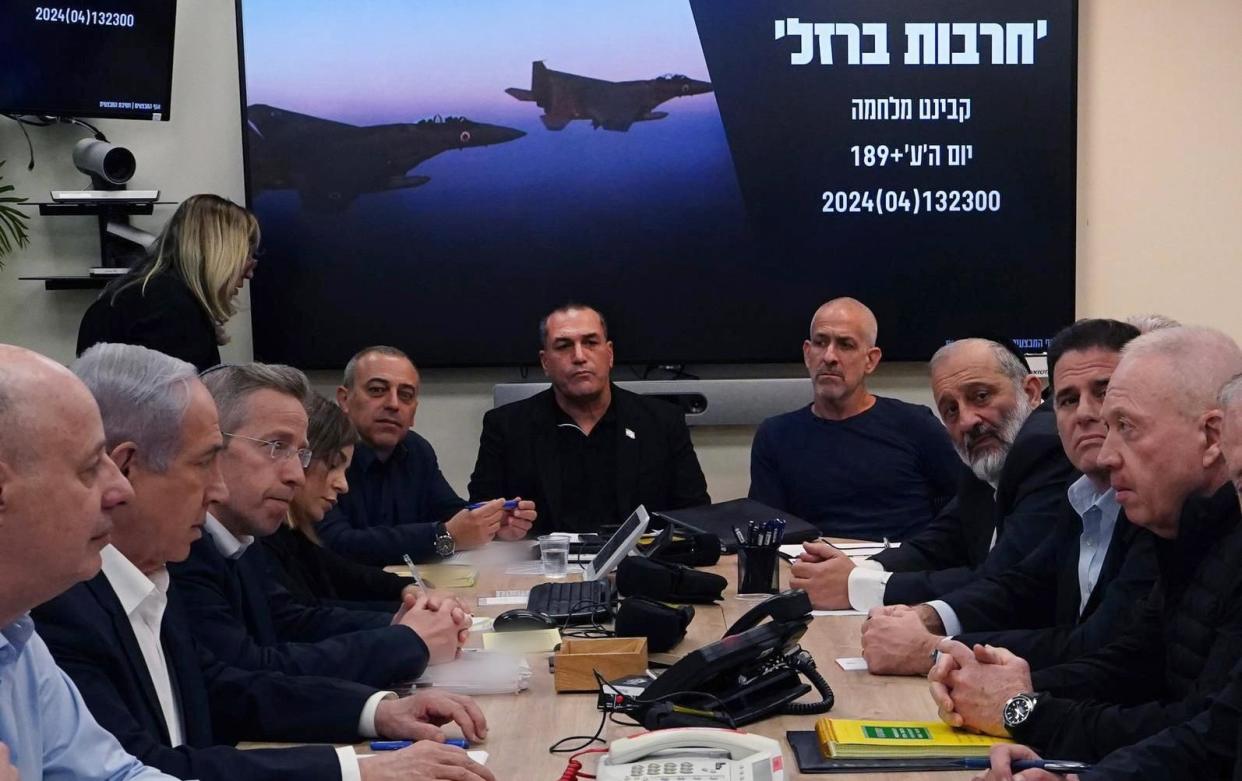Iran tells Putin strikes on Israel were limited

Iran’s president has told Vladimir Putin that Tehran’s strikes on Israel were limited and it wanted to avoid further escalation, in what was the allies’ first phone call since Sunday’s missile and drone attack.
The Russian president spoke to Ebrahim Raisi, his Iranian counterpart, on Tuesday, with the Kremlin saying Russia hoped all sides would show “reasonable restraint and prevent a new round of confrontation fraught with catastrophic consequences for the entire region”.
Earlier on Tuesday, Wang Yi, China’s foreign minister, said Beijing believed Iran could “handle the situation well and spare the region further turmoil”. Mr Yi said China had noted Iran’s claim that its “action taken was limited and was an act of self-defence”.
The regime in Tehran is expecting a retaliation to the unprecedented missile and drone attack on Israeli territory.
The Israeli war cabinet has been debating how to respond to the attack, and has agreed that the retaliation should be “strategic but painful”, a source familiar with the discussions told The Telegraph.
The war cabinet is still determined to respond to the 350 missiles and drones fired from Iran, Yemen, Iraq and Lebanon, but disagreement remains over when the attack should take place and in what form.

Although Israel had previously warned that any country launching an attack on its territory would be hit in reply, the cabinet is now considering striking targets outside Iran’s borders, the source said.
Israel is content to let anxiety about its retaliation bubble away in Iran, according to the source.
Another source told The Telegraph that Benny Gantz and Gadi Eisenkot, the war cabinet ministers, pushed for an immediate military response as the Iranian attack was under way, but were voted down by other members of the war cabinet.
The source also said the war cabinet was in agreement about the need for a strong response.
With regional tensions high after Iran’s attack, an Israeli strike killed a Hezbollah commander in southern Lebanon on Tuesday, the Israeli military said. Israel and Hezbollah have been exchanging near-daily cross-border fire since Oct 7.
The Israeli military said its “aircraft struck and eliminated Ismail Yusef Baz, the commander of Hezbollah’s coastal sector”, adding he was killed in the Ain Baal area.
“As part of his position, Ismail was involved in the promotion and planning of rocket and anti-tank missile launches toward Israel from the coastal area of Lebanon. In addition, during the war, he organised and planned a number of terror attacks against Israel,” the army said.
Mr Gantz said he spoke to senior American officials about the need to impose sanctions on Iran, adding: “Iran is a global and regional problem, and also a threat to Israel.
“Therefore the world should act against it militarily and impose sanctions on it in order to stop its aggression.”
Daniel Hagari, the Israel Defense Forces’ spokesman, said Israel “can’t stand still from this kind of aggression, Iran will not get [off] scot-free with this aggression. We will respond in our time, in our place, in the way that we will choose.”
Iran, meanwhile, said it was not seeking further regional escalation but would respond to an Israeli attack “within seconds”.
“There will not be a 12 or 13-day gap between a Zionist regime move and Iran’s powerful response any more. The Zionists must now reckon in seconds, not hours,” Ali Bagheri Kani, the deputy foreign minister, said on Tuesday.



